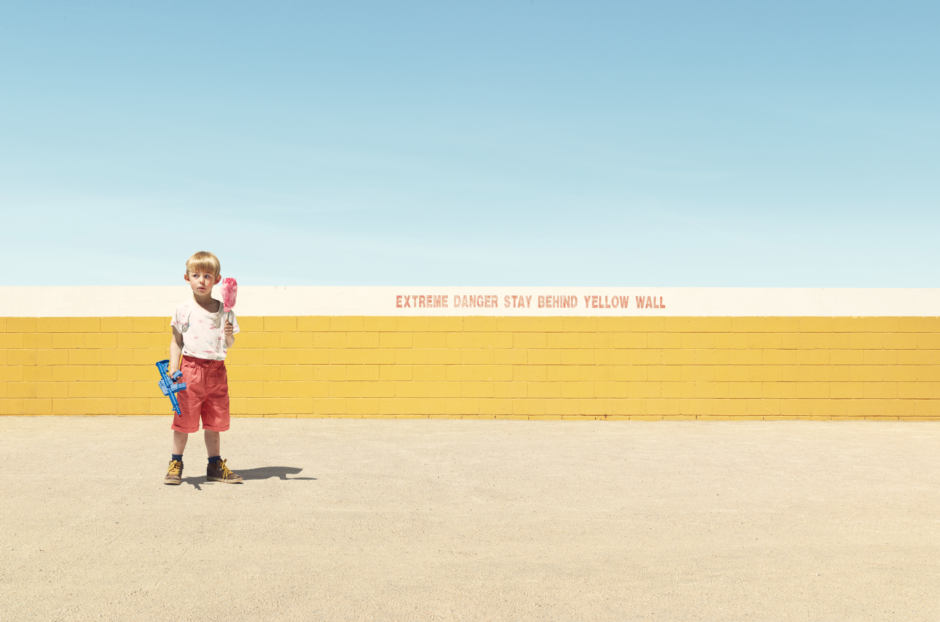Clemens Ascher is an Austrian born photographer and visual artist based in London who creates clean, bold and graphic photography with an abstract minimalist style.
His dystopian spaces reveal the simplistic beauty of situations, structures and landscapes with a bold sense of colour.
What are you working on right now?
I’m finishing up and preparing an exhibition for my new project called The Red Drink. It’s a series that deals with the mechanics and symbolism of advertising and global brands. Therefore I’ve invented a red drink and created a series of photographs that ranges between glossy advertising shots and a twisted – loose narrative introducing some uncomfortable aspects of our globalised world. So whoever’s hanging out in Vienna on October 24 should definitely come down to LEVEL_41 to see my show and grab a few red drinks!
How would you describe your photographic style?
I would say the style of my works is political. The main subject of all my works is control (how we’re all controlled and trying to control each other). And all the worlds I create; the architectures and also the colours are always designed to support the concept of the work. But I guess the visual style of it is mostly bold, graphic and colourful. I always try to listen to my gut feeling. So brain sets the topics and guts manage the style.
What are your biggest influences?
My biggest influence is always my surroundings and in particular all the things I see around me that I disagree with or that disturb me. And in art: Constructivism, De Stijl, Surrealism, and very much William Eggleston and other american colour photographers.
A lot of your work focuses on the boring and overlooked. Why is this?
Because mostly the boring and the overlooked (say in architecture or all aspects of everyday life) reveal a lot more. They are true to their self and not pretending. A world without makeup so to say.
What do you most dislike about contemporary culture?
Digitalisation. It destroys so much tradition, culture, craft and quality.
What do you love most about contemporary culture? Digitalisation. It creates so many possibilities and opportunities – everything is possible.











